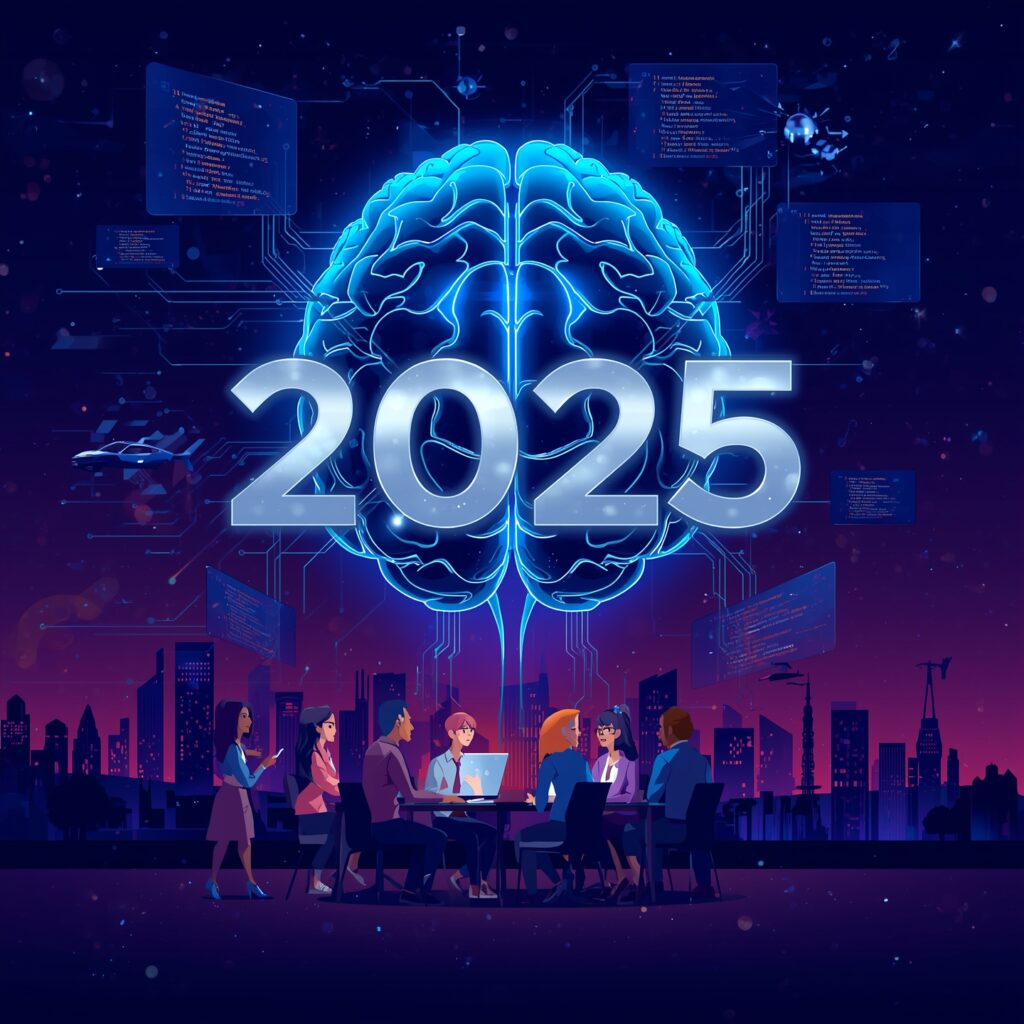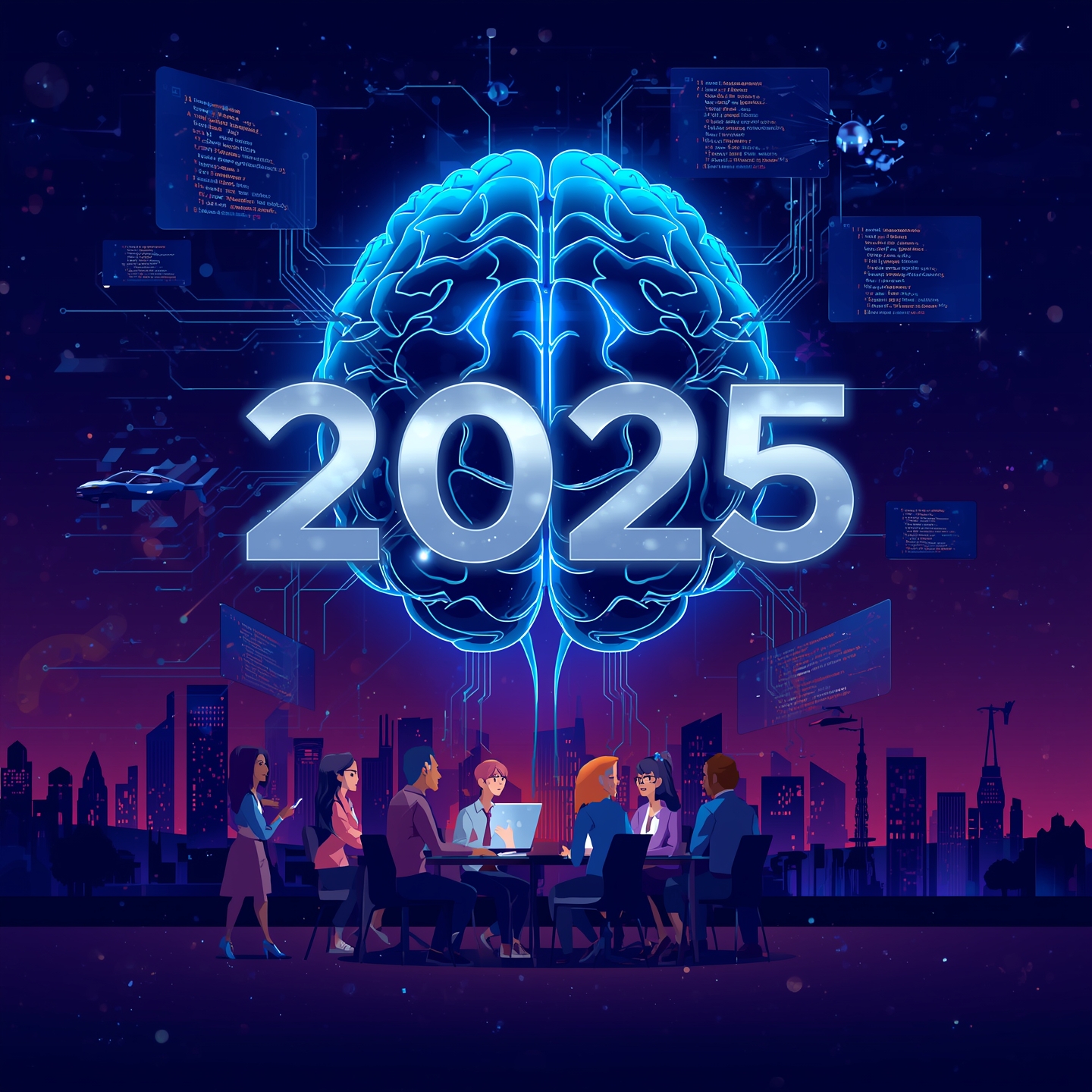Artificial Intelligence (AI) has rapidly evolved from a futuristic concept into an essential part of modern life. From voice assistants like Siri and Alexa to advanced tools that power self-driving cars and healthcare diagnostics, AI is everywhere. As we enter 2025, the question is no longer “Will AI change the world?” but rather “How fast and in what ways will it reshape our future?”
In this article, we’ll explore the top AI trends of 2025, the challenges the industry faces, and the opportunities AI offers to individuals, businesses, and society.
AI in 2025 – An Overview
AI is projected to be a $407 billion industry by 2027, according to market reports. By 2025, AI is expected to:
- Drive innovation in healthcare, finance, education, and transportation.
- Improve decision-making through data-driven insights.
- Boost automation in manufacturing and logistics.
- Play a major role in personalized user experiences.
AI is no longer an optional investment for businesses—it’s becoming a necessity for staying competitive.

Top Artificial Intelligence Trends in 2025
1. Generative AI Goes Mainstream
Generative AI, powered by models like GPT-5 and beyond, will create realistic content, videos, and even code at scale. Businesses will use it for:
- Marketing content creation (ads, blogs, social media posts).
- Customer support automation with natural, human-like responses.
- Product design prototyping using AI-generated concepts.
SEO Tip: If your business uses generative AI tools, you can target long-tail keywords like “best generative AI tools 2025” or “AI for content creation”.
2. AI-Powered Automation in Every Industry
AI will automate repetitive and complex tasks across sectors:
- Healthcare: Automated medical image analysis and diagnosis.
- Finance: Fraud detection and risk assessment.
- E-commerce: Personalized product recommendations.
Automation will lead to faster workflows, reduced costs, and improved accuracy—though it also raises concerns about job displacement.
3. AI in Cybersecurity
With cyber threats evolving, AI-driven security systems will detect and respond to attacks in real time.
- AI will predict vulnerabilities before hackers exploit them.
- Machine learning algorithms will detect suspicious patterns faster than humans.
Businesses should invest in AI-powered security solutions to safeguard sensitive data.
4. AI in Healthcare
By 2025, AI will revolutionize healthcare by:
- Predicting diseases before symptoms appear.
- Assisting in robotic surgeries with extreme precision.
- Providing virtual health assistants for patient monitoring.
This will improve patient outcomes while reducing healthcare costs.
5. Ethical & Regulatory Developments
With great power comes great responsibility. Governments are introducing AI regulations to ensure:
- Fair use of data.
- Prevention of bias in AI algorithms.
- Transparency in AI decision-making.
Companies will need AI ethics officers to ensure compliance with new laws.
Challenges Facing AI in 2025
Even with its potential, AI faces serious obstacles:
1. Data Privacy Concerns
AI relies on massive datasets, which raises privacy issues. Businesses must balance innovation with data protection laws like GDPR.
2. AI Bias
If trained on biased data, AI can produce unfair results. In hiring, healthcare, or law enforcement, bias can lead to ethical and legal issues.
3. Job Displacement
While AI creates new roles, automation may replace certain jobs, requiring large-scale reskilling programs.
4. High Implementation Costs
Small businesses may struggle to adopt AI due to the expense of infrastructure, tools, and talent.
Opportunities in AI for 2025 and Beyond
1. Business Growth
AI-driven analytics will help businesses identify trends, improve efficiency, and expand globally.
2. New Career Paths
AI is creating demand for roles like:
- AI engineers.
- Data scientists.
- AI ethicists.
3. Personalized Experiences
From personalized learning in education to custom shopping experiences in retail, AI will enhance how we interact with technology.
4. Sustainable Solutions
AI can optimize energy use, reduce waste, and support climate change solutions—benefiting both businesses and the planet.


